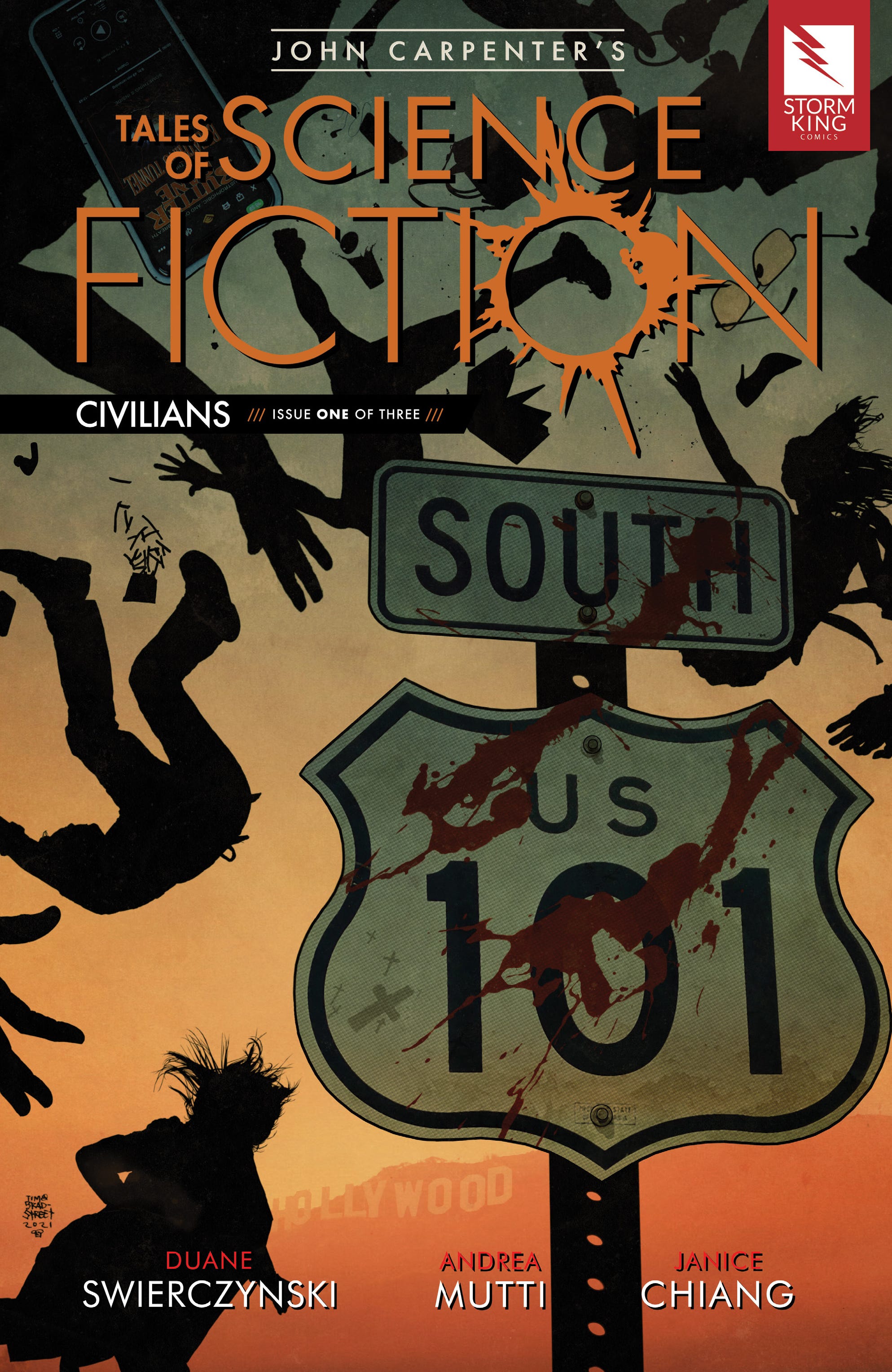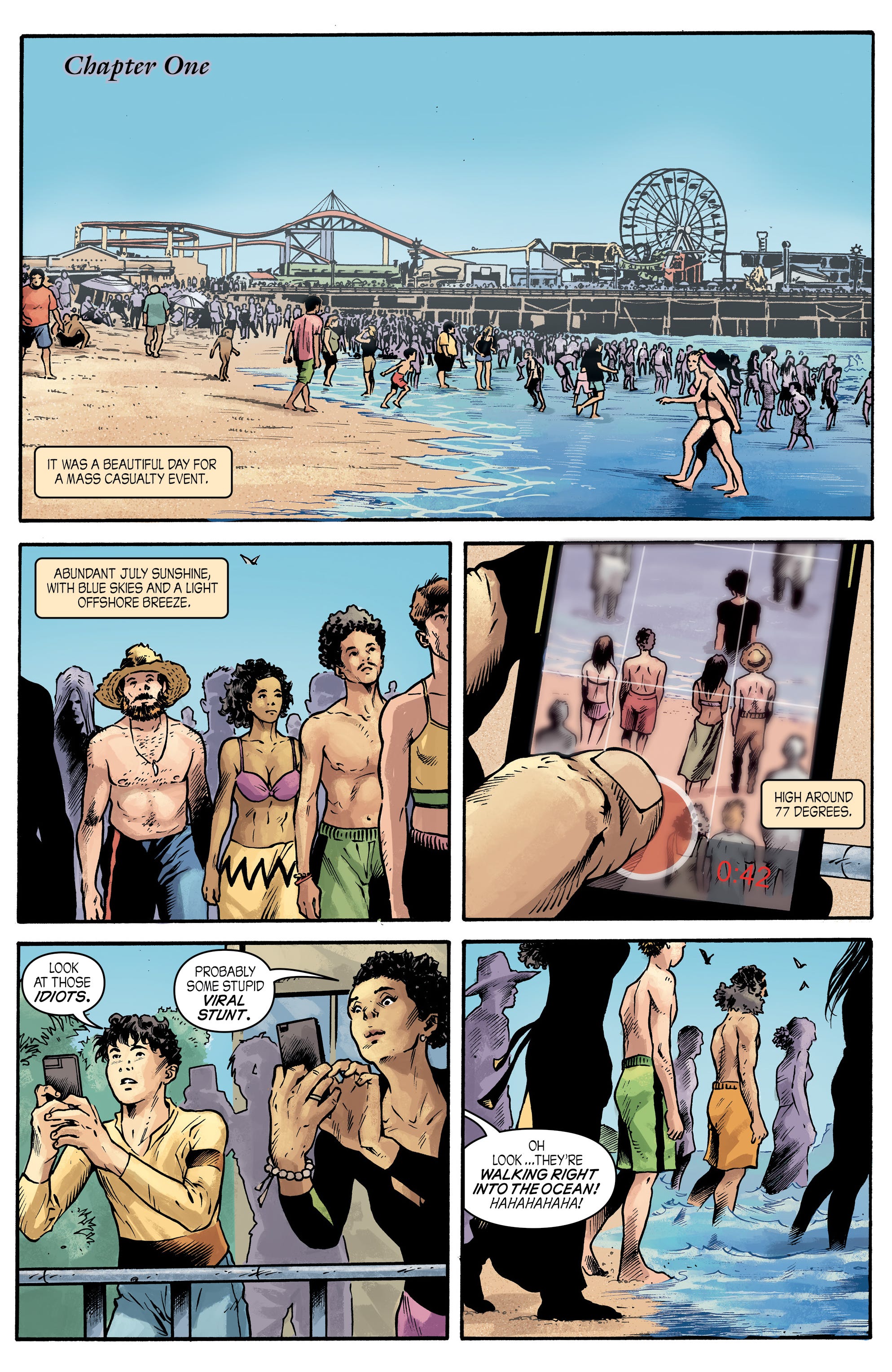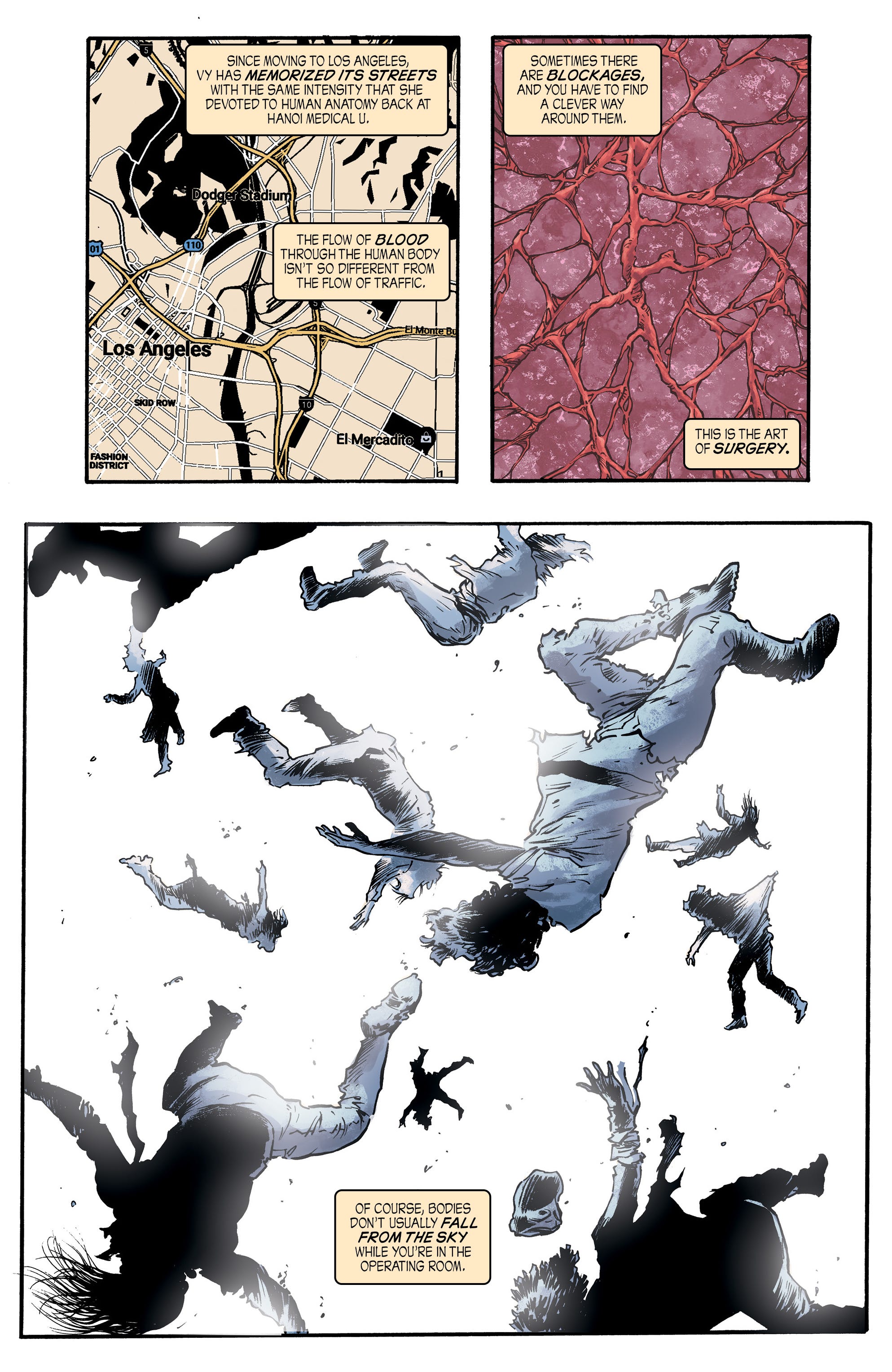| EDITOR'S NOTE: I wanted to share this newsletter from former Philadelphia resident and comics/crime fiction/screen writer Duane Swierczynski because the message needs to be shared. Read on . . . . . . | |||||||||||
In early 2001 I was married and living in upstate Pennsylvania and working part time at Men’s Health magazine. The grind was getting to me: three days a week I commuted an hour each way to Emmaus, and I spent the other four days on scattered freelance work. I hated where I lived. I hated what I was writing—coverlines, fitness copy, nutrition tips. I wanted to focus on fiction but I had already tried and failed. (More on this in a moment.) I was flailing. So in a slightly desperate effort to redirect my career, I accepted a job as a senior editor at Philadelphia Magazine, where I had started out a decade before. Sure, technically it was a retreat—but I was also landing higher on the masthead. And after almost five years away, I missed Philly (my hometown). Maybe this would recharge my brain. The only problem was, my wife had just started her final semester at Wilkes University. I couldn’t expect her to leave that behind. So we agreed to move to Philadelphia that spring. But until then, I needed a place to stay during the work week. I asked my Grandpop Lou if he’d mind if crashed with him. “Yeah, I don’t mind.” Lou had been living alone in his Frankford rowhome since 1993. My Grandmom Bernice died December 26, 1990—brain cancer took her at the crazy young age of 60. We all marveled how Lou handled this devastating blow and kept on going. We nicknamed him “Super Lou.” Cancer would eventually take the lives of his daughters Carol (my godmother) in 2003, and Joyce in 2004. (Yes: cancer has always been a complete asshole to my family.) I drove down on a Sunday night and set up shop in my Aunt Diane’s former bedroom. On her white wooden corner desk I placed a small stack of paperbacks and some research files. I also brought along Galore, Kirsty MacColl’s greatest hits CD. MacColl was on my mind because she had tragically died just two months before in Cozumel, Mexico while saving her 15-year-old son from the path of a wayward powerboat. I sat in that candy pink bedroom and listened to “Miss Otis Regrets,” MacColl’s cover of Cole Porter’s 1934 crime ballad. Like Miss Otis, I also had my regrets. By this time I already written my first novel, Secret Dead Men. I cranked out the first draft in Brooklyn the summer of 1998. I spent 1999 finding an agent and revising the novel. Early in 2000, we sent it out. Secret Dead Men had a nibble at one of the bigger publishing houses, but ultimately they passed. Their reason was the same reason everyone else passed: they didn’t know where to shelve it. Mystery? Science fiction? Horror? This made no sense to me, because I’d read and loved plenty of cross-genre novels. But no one else could see it. My agent considered my journalism background and suggested nonfiction. He quickly found me a deal: writing The Encyclopedia of the FBI’s Ten Most Wanted, which sounded like a dream project. Mini-profiles of every single fugitive named to the Top 10 list since it was created in 1950? Fuck yeah, sign me up. My friends, it was not a dream project; I had no idea how difficult and time-consuming the work would be. I wouldn’t finish the first draft until 2004, and that was with the help of a freelancer researcher and my own editor (who’d left the company in the interim). I didn’t finish the book so much as survive it. When I moved in with my Grandpop Lou, I was still laboring through the book, lugging along manila folders full of wanted posters and photocopied newspaper clippings. I had taken that new job at Philly Mag, but I still owed this book, and I was beginning to realize I was in way over my head. I would put in a full day at work, then take the El and bus home to 2046 Bridge where I’d set up my clunky Gateway laptop on my grandfather’s kitchen table and try to crank out another fugitive profile or three. And my grandfather would sit with me, talk to me. Now here comes the asshole part. The asshole was me. I sat there, trying to cobble together a profile, annoyed that my grandfather was talking to me, telling me another story. I wish I could travel back through my own timeline and slap myself in the face and scream: Listen to this man, you idiot! Fuck the book; the book doesn’t matter. Listen to his stories and write them down immediately. You have no idea how precious these moments are. But I didn’t. I was a 28-year-old wannabe writer who loved his grandfather but didn’t realize that these stories were everything.
I remember fragments; Lou told stories in random order. One story sparked a tangent, and he’d follow that for a while. Don’t get me wrong, he had the pacing of a barroom ranconteur. You couldn’t help but listen. He knew how to lead you along, then surprise you with a twist. He knew you knew what was coming… and then he’d pull the rug out from under your feet. He had the accent of a working man, who knew how to talk to other working men. Lou was, after all, a guy who had a blue collar job at a chemical company most of his adult life. He knew how to bullshit over beers. But he was probably smarter than any of the men resting their elbows on the bar. He could hold his own with anyone. He held back, let you underestimate him. Then he’d pounce. I don’t think I have any recordings of his voice. It exists only in my mind, and that’s a poor substitute. But as I sit here and write, I can hear him speaking. We sat at the kitchen table he’d tell me about his childhood in Southwark. Lou told me about the time he tried to hitch a ride on a trolley car but was thrown from the vehicle and ended up with a nasty gash along his side. He tried his best to hide the wound from his mother and stepfather. But the blood wouldn’t stop, and was forced to admit the truth. The word “hardboiled” is thrown around a lot in the crime genre, but when I hear it I always think of this story. Lou asked me about the fugitives I was working on, and I mentioned Frederick J. Tenuto, the so-called “Angel of Death” who busted out of a Philly prison with gentleman bank robber Willie Sutton. “Do you know him?” I asked. “Know him?” Lou said. “Guy owes me five bucks.”
I did record some fragments of these stories. On February 6, 2001, I arrived home from the new job, excited by a new story idea I had (the origins of what would later become The Wheelman). But also Lou told me some stories that evening, and I scrawled some notes:
Even though it seemed like a distraction at the time, these stories would work their way into The Wheelman, especially the sections set down by the Delaware River. I lived with Lou until May, when my wife and I finally found an apartment downtown. Lou offered to take me on a tour of his old South Philly neighborhood, which sounded like fun. Maybe there would even be a magazine story in it. But there never seemed to be a good time. Work kept me busy, as did the Ten Most Wanted book (and later that year, another book on American bank robbery). And then we had a kid. And then another kid. And I left the magazine job and taught for a while and wrote The Wheelman and took another job and… We never took that tour. I saw Lou often—for holidays and birthdays and cookouts. He’d often stop by to bring our kids Trader Joe’s treats and be silly with them. He attended every single one of my book events. He never was the type to brag to his friends, but I knew he was proud of me, and that feeling lifted me up so much. I felt special because I mattered to him. When Lou died I was just finishing up a draft of what would become my fifth novel, Expiration Date. Not only was it dedicated to him, but it had been inspired by him. Those stories about his childhood, and how he told them. The experience of living with him back in 2001. Expiration Date would end up being nominated for the Edgar Award under the category of Best Paperback Original. (Please, nobody tell the Mystery Writers of America that it was a sci-fi novel in mystery drag.) I try not to dwell on regrets, but God I do very much regret not clearing my schedule for a day—just a day! I want to scream at my past self—and driving Lou around his old neighborhood. The stories I would have heard. Today is Lou’s birthday; he would have been 96. I hope that when I die, I wake up at the corner of 2nd and Christian, where he’s waiting for me. I really need to know the deal about “One-Eyed Luzak” and that psycho with the baling hook. John Carpenter’s CiviliansSpeaking of slaughter and science fiction (wow, how’s that for a tortured segue)… the first issue of my latest comic series appears later this month—John Carpenter’s Tales of Science Fiction: Civilians. Script by yours truly, pencils by Andrea Mutti, inks by Gigi Baldassini, colors by Valerio Alloro, letters by Janice Chiang, covers by Tim Bradstreet, and edited by Sandy King. Check out this Bradstreet cover! What’s it about? Here’s the official synopsis:
And here’s a sneak peek at some of the pages… The first issue drops February 23 (the day after my birthday, actually) at finer comic shops everywhere. That’s all for now. Be kind to each other, and see you later this month. If you’re enjoying these newsletters, tell a friend! WHO THE…??? You’ve signed up for a newsletter from writer Duane Swierczynski, who has written a dozen novels, hundreds of comic books, a fistful of screenplays and audio dramas, and other assorted nonsense. Born and raised in the City of Brotherly Love, he now lives with his family near the City of Angels. Learn more at linktr.ee/swierczy.If you liked this post from Gleeful Mayhem, why not share it? |
Monday, February 7, 2022
GLEEFUL MAYHEM: The Ticking Of The Grandfather Clock
Subscribe to:
Post Comments (Atom)








No comments:
Post a Comment